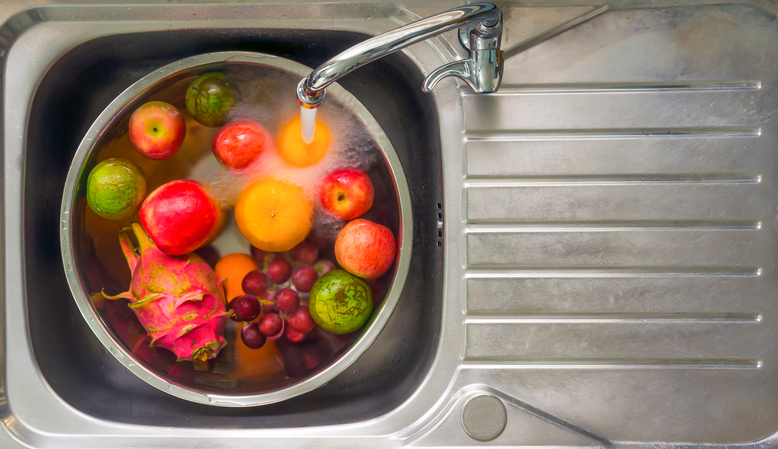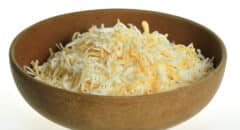
Millions of portions of fruit and vegetables are eaten every day by us, our family members and our friends. Most of us usually rely on quickly running our fruit under running water pretty quickly to "clean" it. But now, as new research has revealed, water may not be the best way to clean your fruit.
Samples of fruit and vegetables from a general grocery store have been found to have traces of up of 11 chemicals. One sample of raisins contained residue of 13 pesticides. Also, it's been found that fruits like grapes, apples, guava, plums, mangoes, peaches and pears and vegetables like tomatoes, brinjal and okra might carry more residue in their crevices.
Research from the University of Massachusetts, baking soda removes up to 96 percent of pesticides from fruit and vegetables, new research reveals.
When mixed with water and gently rubbed on apple skins, the kitchen staple eliminates nearly all the reside left by commonly-applied pesticides within 15 minutes, the study found.
This method is more effective than the standard procedure of applying a type of bleach to the fruit for two minutes, the research adds.
Previous research reveals baking soda breaks down pesticides due to its highly-alkaline pH, which causes the chemicals to fragment into harmless molecules.
Lead author Dr Lili He from the University of Massachusetts, said: "Pesticide residues may remain on agricultural produce, where they contribute to the total dietary intake of pesticides. Concerns about potential hazards of pesticides to food safety and human health have increased, and therefore, it is desirable to reduce these residues."
According to 2010 data, washing them with 2% of salt water will remove most of the contact pesticide residues that normally appear on the surface of the vegetables and fruits. Although not as good as baking soda, 75 to 80 percent of...
... pesticide residues are removed by cold water washing.
Here are some other ways people are washing:
Vinegar Soak
Whip up a solution with 10 percent white vinegar and 90 percent water and soak your veggies and fruits in them. Stir them around and rinse thoroughly. Be careful while washing fruits like berries, and those with a thin peel as the solution might damage their porous outer-skin.
Blanch and Peel
Treat your vegetables to warm water for a short while and this should remove any leftover residue. Peeling is another efficient way to remove residue and comes highly recommended especially when there might be some residue in the crevices of the fruit. Also, when cooking with chicken or meat, cut off the excess fat and skin as it could have absorbed unwanted pesticide residue.









